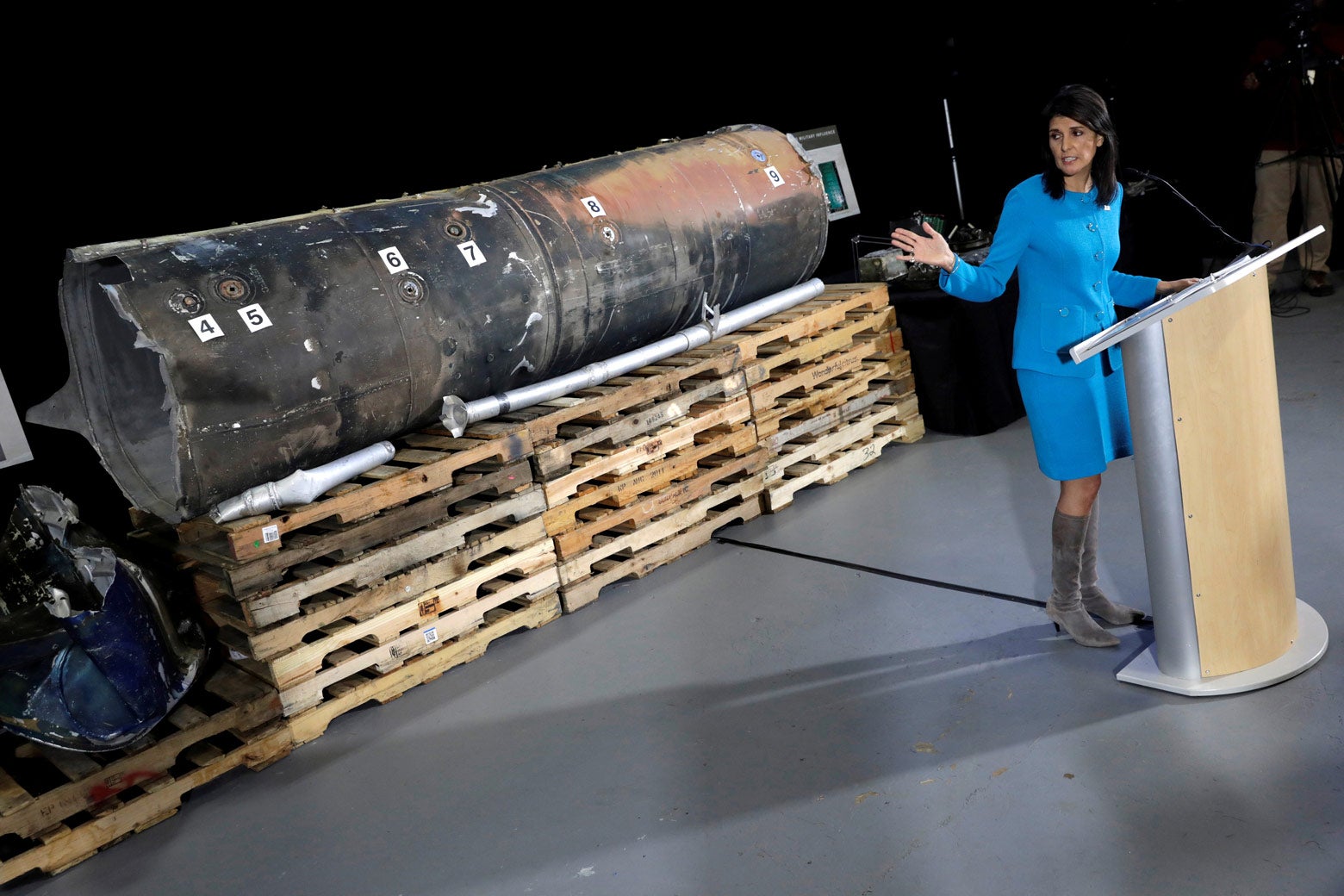It’s getting harder to dismiss the possibility that the U.S.
might launch a military strike against North Korea—a move that would likely lead to a devastating loss of life. This would be concerning enough on its own, but the risk of armed conflict with Iran also appears to be rising.
The White House has again publicly contradicted Secretary of State Rex Tillerson’s suggestion that the U.S. is open to talks with the North Koreans. (At this point, it’s probably no longer useful to think of Tillerson’s statements as representing official U.S. positions.) Sen. Lindsey Graham, who’s become increasingly close to the president, tells Uri Friedman of the Atlantic that he believes there’s a 30 percent chance the U.S. will strike first to prevent North Korea from acquiring the ability to hit the U.S. mainland with a nuclear armed missile, and that the likelihood would rise to 70 percent if North Korea tests another nuclear bomb.
War talk from someone as hawkish as Graham should normally be taken with a grain of salt. But as Daniel Drezner notes Thursday, account after account describing the thinking of senior administration officials suggest that they really don’t believe traditional nuclear deterrence will work with North Korea, and that a preventive strike will be the only way to prevent the country from using its nukes. Former military commanders appear to be taking the possibility of war seriously. “The Trump White House talking about North Korea sounds eerily and increasingly like the George W. Bush administration in the run-up to the Iraq War,” Kori Schake, a former staffer on Bush’s national security council, recently wrote.
There were also distinct 2003 vibes to U.N. ambassador Nikki Haley’s dramatic presentation Thursday, delivered in front of fragments of the missile Houthi rebels in Yemen fired at Saudi Arabia in November. Haley presented evidence that Iran had supplied the missile—which Iran continues to deny—and accused Tehran of “fanning the flames of conflict” throughout the Middle East. Haley was vague about what the U.S. plans to do next, but she said the “Iranian regime cannot be allowed to engage in its lawless behavior any longer,” and that “you will see us build a coalition to really push back against Iran and what they’re doing.”
The Trump administration has, to a remarkable extent, adopted the worldview of allies Saudi Arabia and Israel, seeing Iran as a unique and overwhelming threat that must be contained. At least some in Trump’s orbit, notably Sen. Tom Cotton with whom the White House has coordinated its strategy to “fix the flaws” with the Iran nuclear deal, go even farther. “The policy of the United States should be regime change in Iran. I don’t see how anyone can say America can be safe as long as you have in power a theocratic despotism,” Cotton has argued.
There doesn’t seem to be the same momentum pushing the U.S.
toward war with Iran as with North Korea. (For one thing, despite years of griping about the Iran deal, Congress can’t even get it together to pass the legislation intended to fix it.) But it’s not hard to imagine a scenario in which the U.S. could stumble into conflict, particularly if the nuclear deal were to collapse.
In mid-January, Trump will face another deadline to certify Iran’s compliance with the deal, and if there’s been no progress since he decertified it two months ago, pressure will grow to take stronger action. A series of tit-for-tat provocations and retaliations by the U.S. and Iran could quickly spiral into something very dangerous.
During his campaign for president, Trump distinguished himself from Republican rivals as well as Hillary Clinton by criticizing the war in Iraq and the zeal of recent presidents for regime change and large military engagements. But as president, he has massively expanded the U.S. military footprint in multiple countries, and substantially increased the likelihood of a new major military action. If developments continue in their current direction, the question may soon be less whether Trump will launch a new U.S. war, than where.
